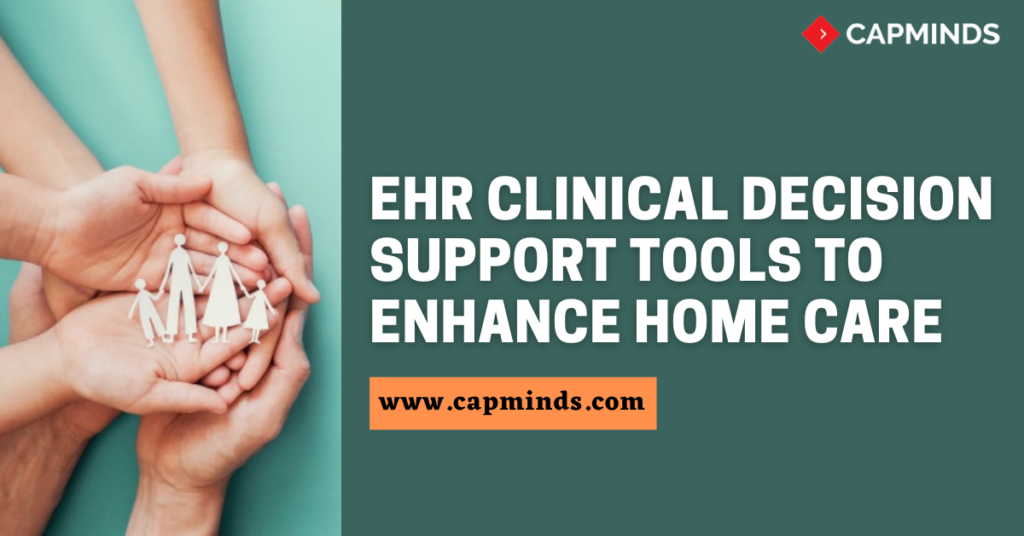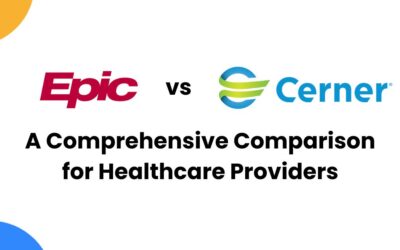EHR Clinical Decision Support Tools To Enhance Home Care
As the volume of available health data and the responsibility to deliver value-based care increases day by day, the clinical decision support systems are quickly becoming essential tools for healthcare providers.
Based on the recent study, approximately two-thirds of home care patients are hospitalized during the first two weeks of home care services. It is also revealed that the timing of the first home care visit is very crucial to prevent hospital readmission. However, the home caregivers have inaccurate or limited patient health information, which means that they don’t have the proper information to make decisions about when that first home care visit should take place.
The electronic health record (EHR) created an opportunity for clinicians and home caregivers by making a readily available huge amount of patient data and other health information that could be used for clinical decision support (CDS). The U.S. Legislation has created financial incentives to adopt an EHR and, more importantly, to derive meaningful use from the EHR.
What Is Clinical Decision Support?
Clinical decision support is a tool that offers health information targeted to a specific person/situation to administrative staff, patients, caregivers, physicians, and health experts. The CDS is intended to improve the quality of healthcare, reduce errors and allow care team members to be more efficient.
The HealthIT government mentions that the CDS can include the list of decision-making aids:
- Reminders and alerts to healthcare providers and patients
- Clinical guidelines
- Focused patient data reports and summaries
- Condition-specific order sets
- Documentation templates
- Diagnostic support and more
RELATED: CLINICAL DECISION SUPPORT SYSTEM: ALL YOU NEED TO KNOW
EHR Integrated CDS Tool
Reducing duplicative testing and ensuring patient safety are the top priorities for providers. The clinical decision support (CDS) tools integrated with electronic health records (EHR) ultimately help to streamline workflows and take advantage of existing data sets.
The researchers developed an EHR-integrated CDS tool to help nurses flag the patients they should visit in the home first. It was developed in a manner that the high-risk patients might get home care visits faster than the patients with fewer medical complications. Being approved in October 2019, the tool currently integrates into both home care and hospital EHR systems. It is reported by the research team data collection will begin in early 2021 once patients are selected for research.
The Implementation Phases In EHR – CDS
The researchers revealed the three phases in the EHR implementation process which are discussed below.
In this initial face, the clinical decision support users will be identified and proper training for clinicians will be conducted. The research team will analyze the existing health IT infrastructure and the EHR system to develop a plan for successful EHR integration.
In the second intervention phase, the trained clinicians will make use of the CDS tool in a practice setting. Then the researchers will monitor the clinicians continuously and guide them to make changes if necessary. The team also helps to optimize the infrastructure and EHR workflow, if needed. In the final post-intervention phases, the team will evaluate the barriers to the clinical decision support implementation and user effectiveness.
RELATED: INTEGRATING SOCIAL DETERMINANTS OF HEALTH DATA INTO EHR
Why Clinical Decision Support System Matters?
The clinical decision support systems are expected to find the right adoption in the area of patient surveillance. It serves as an essential interface between EHR complexity and the clinical workflow. The significant growth opportunities in CDS include:
- Extending population health services to improve patient outcomes
- Using automation system to directly communicate with the patient and EHR for necessary clinical decisions.
- Ensuring the best patient portals are optimized according to the healthcare needs of the patients.
Benefits Of EHR Implemented Clinical Decision Support Tools
Clinically relevant links embedded in the EHR to data regarding medications, lab results, and treatments may encourage the clinician to access the most updated real time patient health information.
- Clinical scoring tools embedded within the EHR can gather health information from a specific patient medical record to guide the clinician with diagnosis and treatment decisions
- The important clinical data like lab results contained within the EHR can be used to create alerts that notify the clinicians about the patient treatment results.
- The EHR-linked CDS at the time of diagnostic test ordering has a change to decrease the use of inappropriate diagnostic testing.
- Implementing clinical decision support alerts into EHRs aims to reduce healthcare costs based on these typical health system challenges.
Final Thoughts
As healthcare delivery is becoming more complex nowadays, the trends towards the adoption of new information technology will drive the need for clinical decision support. The increasing interoperability and patient empowerment requirements encourage EHR vendors to include clinical decision support tools into EHR.
The EHR-CDS will create a great opportunity for the clinicians in the accurate medical decision making. CapMinds advanced health analytics – clinical decision support solution helps you to access real-time patient health data securely and also provides you the ongoing optimization and EHR updates to adhere to current medical standards.




